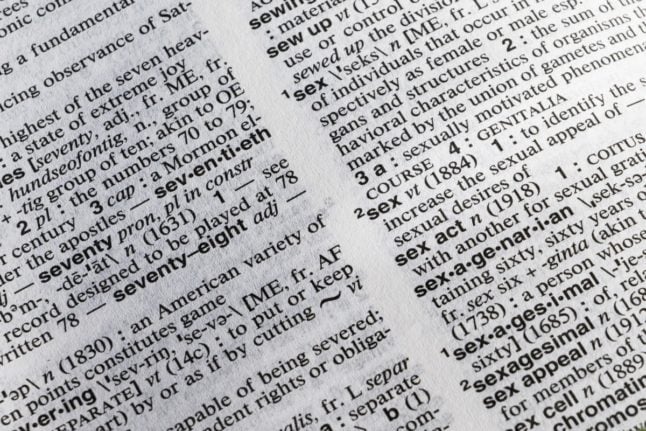It’s far from an uncommon scenario; you’ve asked a question in what you think is pretty good French only for the French person to notice your accent and instantly switch into English.
And while communication might be easier like this, it can be frustrating if you have been studying hard and want to try out what you have learned.
French language expert and founder of French Today Camille Chevalier-Karfis explains some of the reasons that this happens.
1. Don’t take it personally
As nervous language learners we tend to assume that this happens because our accent is terrible or we have made dreadful errors of grammar but it’s equally likely that this isn’t about you at all.
As excited as you are to show off your French, the person that you’re talking to might be equally excited to show off their English, or might just want the opportunity to practice or brush up their language skills. Most French children learn English at school and increasingly younger people watch box sets in English so plenty of people are keen to talk to a genuine Anglophone.
Camille says: “It’s a French habit to be polite and try to help people out, and we do also have a bit of a tendency to show off, so it may be that the person you’re speaking to wants to show off how good their English is.
“But I think the big difference is that French people tend to be more blunt and opinionated. If you don’t want to speak English they would expect you to say that and don’t really understand why you would be upset but say nothing about it.”
READ ALSO Understand Spoken French Pronunciation (with audio recordings)
2. Just ask
Which brings us to the second point – if you want to speak French then ask the person if you can.
Here are some suggestions for a polite request
J’étudie le français et j’aimerais parler français avec vous – I am studying French and I would like to speak French with you
Je préfère parler en français – I would prefer to speak in French
Je suis venu spécialement en France pour parler français – I came to France specifically to speak French
C’est gentil de m’aider avec mon français – It’s very kind of you to help me with my French
Camille says: “Also, be careful using je ne comprends pas as that really means that you haven’t understood anything that the person has said, so they are likely to switch to English if they can. If you have just missed a word or a phrase you can say je ne comprends pas tout – I haven’t understood everything (but I did get most of it).
You can also ask someone Pouvez-vous parler plus lentement/plus fort – could you speak slower/speak up?
READ ALSO Language dilemmas: Why can’t I understand what French people say?
3. Pick the right time and place
Camille says: “You need to recognise that not every French person has the time to be your personal language tutor. If you are in Paris in August in a busy tourist café it will almost certainly be quicker for the waiter to switch to English to take your order and if he’s busy that is probably what he will do.
“It’s not a comment on you or your language skills, it’s just practical.”
How much English is spoken to you will probably also depend on where you are.
Staff in tourist destinations generally speak at least some English and it’s more common in the big cities like Paris than in small towns and rural France. As a generalisation, younger people are more likely to speak English than the older generation of French people.
4. Give yourself a break
It’s easy to feel judged but you need to remember that learning a language is hard.
You shouldn’t expect to be instantly fluent and you will certainly make mistakes so it’s best to learn to laugh at yourself when you fall into one of the many traps that the French language lays out for unwary foreigners (for example un baiser is a kiss, baiser is the verb to fuck. Don’t get those the wrong way round!)
Camille says: “As you are still learning you will not be able to fully represent yourself in French, stuck with a more basic vocabulary you will find it harder to show your intelligence or your sense of humour. That’s OK, you are still learning.”
Camille Chevalier-Karfis is a French language expert, and founder of FrenchToday.com. Do you have a language dilemma for Camille? Email [email protected]



 Please whitelist us to continue reading.
Please whitelist us to continue reading.
Btw. this article kind of answers the question: How do I get French people to speak English? In my experience the best way is for me to continue rambling on in my broken French and suddenly every person who previously said that they couldnt speak English will find these skills again in their brain.
Humm – In Alsace there are very few English speakers. You couldn’t survive here if you don’t speak French…
The article misses a crucial point. It is often not that someone recognizes the accent as English, American, Singaporean, etc. It is because they recognize it is simply not a native French speaker. Since English is now the unofficial second language of, at least, Europe, it is only natural to switch to that. And why not. Go to any multi-national gathering: Trade Fair, symposium, lecture, etc., and you will hear most people speaking English together. Even when none are native speakers. I.e. l’auberge espagnol.
I visit every year and I am trying to learn more french each and every year. This in and of itself, letting people know you want to learn, is very important. If something like this happens I will continue to try to speak french, and they will continue to speak english. It looks very funny to some people as they will coment! But we both are trying to show respect for each other and learn at the same time. If either of us comes up with something we do not understand, or in my case mispronounce! we will stop and talk about that. One thing I have learned is to NEVER speak french canadian! That will draw all sorts of responses, most not very polite!
Here’s the phrase I use: “Ah, on critique les Américains en disant que nous ne parlons sinon l’anglais, mais chaque fois que je parle français, on veut me répondre en anglais. Alor, faut pas nous critiquer …”
The best advice I tell my students : tell them you don’t speak any English 😉 and keep on in French.
http://www.Frenchwithsimone.com